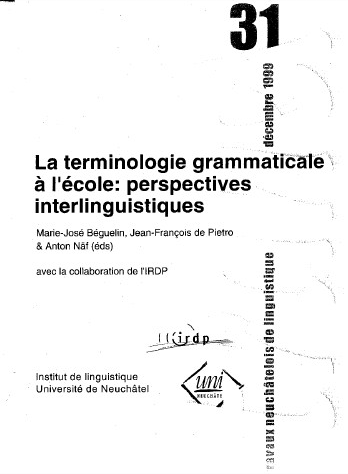Les grammaires française et allemande à l’école: points de contact et divergences
DOI :
https://doi.org/10.26034/tranel.1999.2668Résumé
The traditions of grammatical terminology are quite different in the German and the French educational system. While the French ministry of education issues official regulations which are binding on a national level (they last did so in 1997), the federal system in Germany prevents the standardisation of the grammatical nomenclature for all the Länder of the FRG.
Moreover, the historico-cultural background is different in both countries: the French public has been used to an active and centralist language policy for several centuries; in Germany governmental interference with the linguistic norm is often met with resistance, and the regulation of many details is in fact left to the important publishing houses. For this very reason it was left largely to the school-book publishing houses to decide how to put the recommendations of the German Secretaries of cultural affairs issued in 1982 into practice. The present article is based on a number of selected examples and provides a critical analysis of the usage of grammatical terminology in German and French school-books, and it pleads for a re-orientation – particularly in Germany: the inconsistencies and ad hoc solutions which can be observed quite frequently can only be overcome if the terminology is based on a well reflected linguistic theory. This is the only way to achieve an effect of synergy between grammar lessons in different school languages and ultimately a standardisation of the grammatical terminology on a European level.


